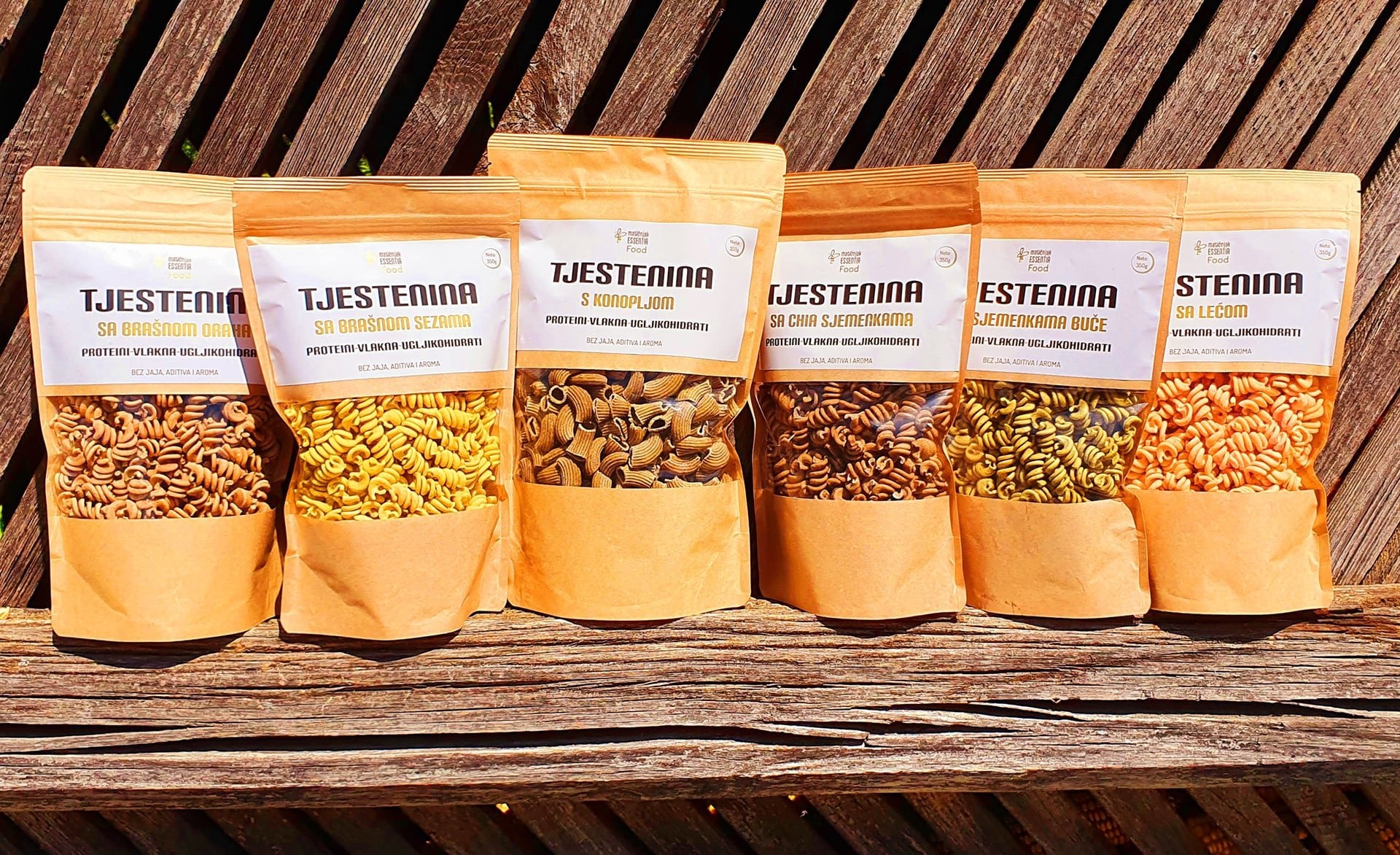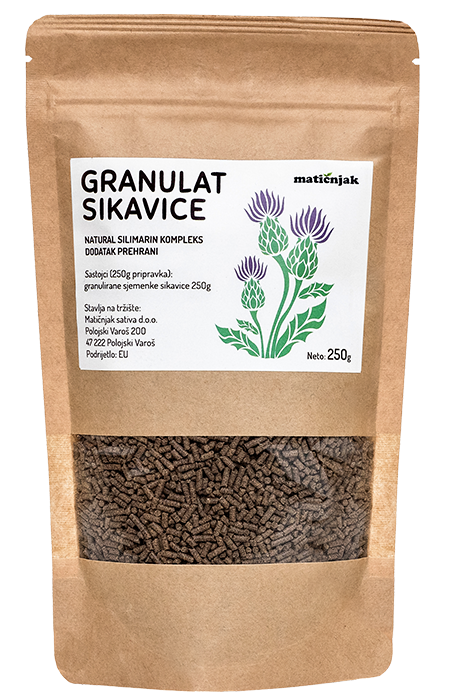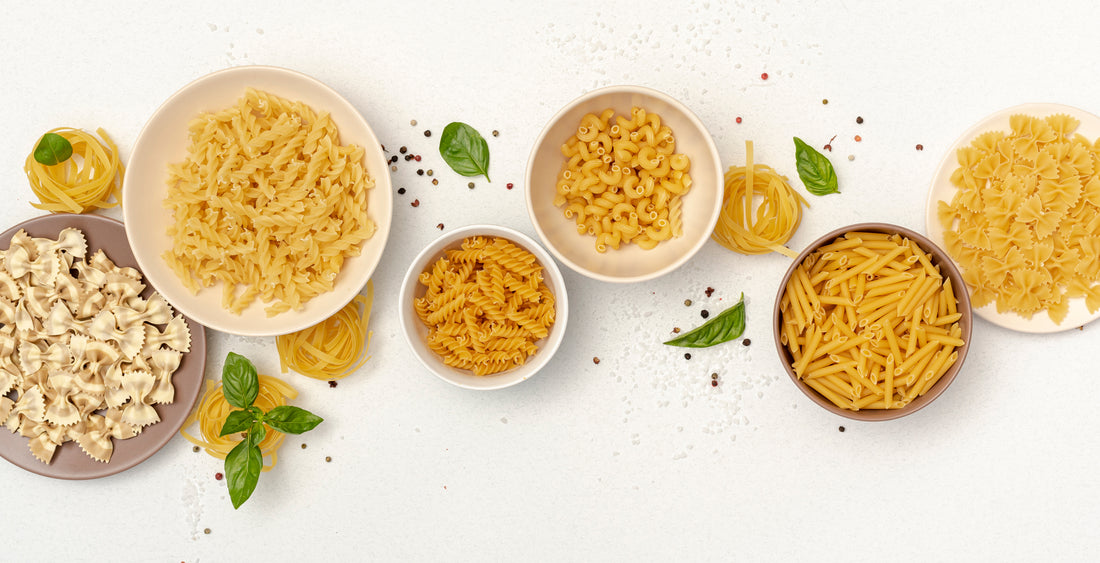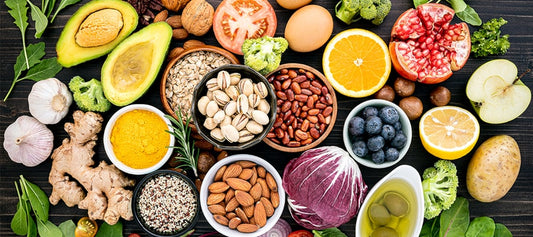Carbohydrates, the main source of energy for our body, have been quite hated lately. The consequences of eliminating carbohydrates from the diet are actually very unfavorable for our body, and the smart use of good carbohydrates in our daily diet is within our reach.
There are several reasons why carbohydrates got such a bad name:
- not distinguishing between "good" and "bad" carbohydrates
- various "low-carb" diet movements
- the misinterpreted link between carbohydrates and diabetes
The difference between "bad" (white bread, refined sugar, sweets) and "good" carbohydrates (fruits, vegetables, legumes and whole grains) is huge, and they are often equated.
Foods that we call good carbohydrates also contain numerous fibers, phyto-nutrients, antioxidants and minerals, and with their regular consumption, we can, among other things, prevent the formation of various infections and cancers.
Our new ones pasta with a high proportion of flour hemp , hazelnuts , walnuts, pumpkins are a tasty and rich meal full of healthy carbohydrates and additional values (protein, fiber, omega-3 and omega-6 fatty acids, etc.), and are also suitable for vegetarians and vegans.

In the seventies of the last century, various ideas about the "low-carbohydrate diet" appeared, which are still popular today. In the desire to lose excess weight, people often practice various meat and protein diets, ignoring the appeals of nutritionists and the body's needs for varied, balanced food, moderation in diet and regular exercise and movement. The association of a low-carbohydrate diet with obesity, cardiovascular and cerebrovascular diseases is also often ignored.
Carbohydrates and insulin resistance
Carbohydrates are also unfairly blamed for the onset of diabetes, although to insulin resistance, which is the basis for all types of diabetes (but also a risk factor for many chronic health conditions, including most autoimmune diseases), in fact in most cases it is due to excessive intake of bad fats. The recommended reduction of carbohydrate intake due to the first signs of diabetes will result in an apparent regulation of diabetes symptoms and will lead to an increase in fat intake. Increased fat intake in turn potentiates the emergence of insulin retention and thus we enter a dangerous vicious circle.
But if we replace at least part of the saturated fatty acids from animal food sources with healthy, unsaturated fatty acids, we will do our body a great favor..
Our cold pressed oil (for example hemp , better linen , walnut and others) are a high-value source of healthy unsaturated fatty acids. They can be combined with protein pasta or consume separately. Find more information here .
We are happy to see that, despite the busy lifestyle, people are taking more and more time for education and taking care of their own health. As a small, local producer, we are glad to have the opportunity to offer Croatian consumers quality and healthy products packed in ecological packaging (glass and paper) and with an expert approach, contribute to this positive global trend of awakening and strengthening awareness about the health of people and the environment. Even in our private life, we are guided by our business philosophy, and we want to share our knowledge and grow together with you.
With small steps, we can do a lot for our health, as well as for the health of our entire family. LET'S SPIN A HEALTHY FILM TOGETHER!
For all questions, feel free to contact us by email.
Source of research:
https://academic.oup.com/eurheartj/article/39/suppl_1/ehy566.P5409/5083950
https://pubmed.ncbi.nlm.nih.gov/28319109/
https://pubmed.ncbi.nlm.nih.gov/24398402/
https://www.ncbi.nlm.nih.gov/pmc/articles/PMC4802397/
https://pubmed.ncbi.nlm.nih.gov/8116550/
https://www.ncbi.nlm.nih.gov/books/NBK22436/
https://pubmed.ncbi.nlm.nih.gov/16051738/
Ivo Bačlija, herbalist, apitherapist
+The information and statements are for educational purposes and should not replace your doctor's advice.








